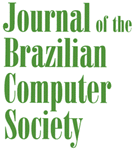Letter from the special issue editor
The integration of emerging network technologies such as wireless networks and broadband networks will allow the future Global Internet to carry countless new multimedia applications. However, providing the required quality-of-service by these new applications can only be possible if proper traffic control mechanisms are adopted. Moreover, the conceptualization of effective traffic control mechanism is highly dependent on understanding the nature of the carried traffic.
On August 13, 1998 the 7th Computer-Aided Modeling Analysis and Design of Communication Links and Networks (CAMAD'98) was held in the city of Sao Paulo, Brazil. CAMAD is a bi-annual event and for the first time it was held in a country of the Southern Hemisphere. CAMAD'98 received over thirty papers from nine different countries. This special issue is composed of selected papers from CAMAD'98 as well as selected papers from an open call.
Although network modeling tools have become increasingly sophisticated and powerful, yet the results they provide are ultimately limited by the fidelity of the synthetic traffic which drive them. In "Search of Better Statistics for Traffic Characterization" Tarka Taralp, Michael Devetsikiotis and Ioannis Lambadaris show that the widely used marginal distribution autocorrelation function modeling methodology may not precisely characterize traffic for queuing analysis. They introduce a novel promising approach which captures discrepancies between stochastic traffic that are not captured by other means.
While it is widely accepted that traffic flow in high speed networks is bursty, the notion of bursty traffic has eluded a definite characterization. In "From Network Measurement Collection to Traffic Performance Modeling: Challenges and Lessons Learned", Judith L. Jerkins and Jonathan L. Wang analyze a large number of traces collected from several different networks and discuss the challenges in data collection, mining and filtering. Moreover, they shed light into issues such as aggregate versus individual traffic, user session versus link layer traffic and user application versus network management traffic.
For ABR closed loop rate based feedback control to be successful, it is imperative that all sources conform to the maximum rate at which they are allowed to transmit. In "Comparison of Three Policing Algorithm for ABR Conformance" Aleksandar Kolarov, G. Ramamurthy, Toru Takamichi and Tutomu Murase investigate different policing mechanisms for enforcing fairness at a small reduction in utilization.
In "Simulation of Controlled Queuing Systems and its Application to Optimal Resource Management in Multiservice Cellular Networks" Jinsung Choi and John A. Silvester investigate the management of radio spectrum resources efficiently in multiservice cellular networks with reuse partitioning.
They show the suitability of Markov Decision Processes to analyze problems raised in the analysis of queues with control arrivals in cellular networks.
In "Disconnection Protocol Support in Mobile Access" Djamel H. Sadok, Judith Kelner and Carlos de Morais Cordeiro propose a change to a mobile extension of the Internet transport protocol which opposes existing approaches to implement disconnect mode within the application. They show that this protocol variation performs better than TCP. They also suggest that disconnection should be considered in the quality of service negotiation among mobile and fixed communication entities.
Finally, I would like to thank CAMAD'98 Technical Committee for their outstanding work in reviewing and selecting the papers included in this Special Issue, as well as Dr Claudia Bauzer Medeiros for her constant support..
Nelson Luis Saldanha da Fonseca
Publication Dates
-
Publication in this collection
31 July 2000 -
Date of issue
Feb 1999

